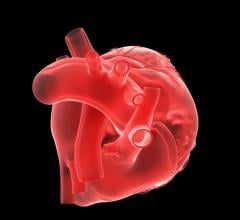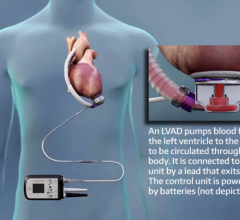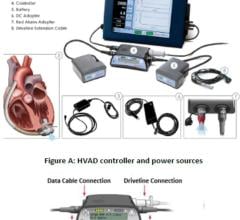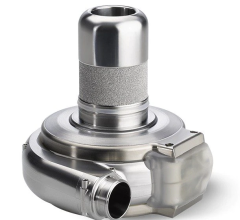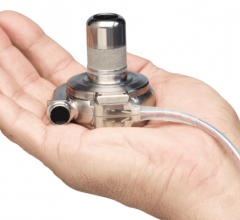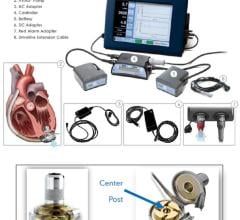
The Synergy Micro-Pump
July 29, 2009 – CircuLite Inc. said today it was awarded a Fast-Track Phase I-II Small Business Innovation Research (SBIR) grant from the National Institutes of Health (NIH) to fund the development of a pediatric circulatory assist device based upon CircuLite’s Synergy Pocket Micro-pump.
CircuLite, who will collaborate with the University of Maryland School of Medicine on the grant, has received funding from the National Heart, Lung and Blood Institute at NIH to support the first phase of the grant. The total potential award for phase I and phase II could reach up to $3.7 million. Synergy is a micro-blood pump, the size of a AA battery, that can be implanted superficially in a pacemaker-like pocket. Synergy is the first and smallest device designed for partial circulatory support (up to 3 L/min) and long-term use in adult patients with class IIIb and early class IV heart failure. Synergy is currently in a CE mark clinical trial at multiple centers in Europe.
The Synergy device was designed to provide partial circulatory support for the failing adult heart, but its small design makes it a logical candidate for a pediatric application after modification. The aim of phase I of this grant is to modify the current CircuLite device such that it will be useable in a child and to determine the feasibility of short-term in vivo use. In phase II, the child system will be finalized and examined in a long-term in vivo study and an infant device will be developed and tested.
The company said the NIH grant is a strong endorsement for its unique approach to heart failure treatment, as well as its potential utility to pediatric patients due to its small size and minimally invasive implantation. The current European study in adults has shown that partial circulatory support provided by Synergy unloads the heart and improves hemodynamics, which can translate into important improvements in functional status and quality of life, the company said.
“Existing devices do not meet the need for circulatory assistance in pediatric patients, even as hundreds of infants and children with congenital or acquired cardiovascular disease die each year while waiting for a donor heart,” said Bartley P. Griffith, M.D., coinvestigator on the grant. Dr. Griffith is chief of the division of cardiac surgery and director of heart and lung transplantation in the department of surgery at the University of Maryland Medical Center in Baltimore and a professor of surgery at the University of Maryland School of Medicine. “To-date, ventricular assist devices designed for adults have not successfully been redesigned for infants and children, due to difficulties in the miniaturization process of these devices. The goal of this NIH grant is to develop long-term implantable miniature partial circulatory support devices for infants and children, built upon the technology of the already micro-sized Synergy device.”
For more information: www.CircuLite.net

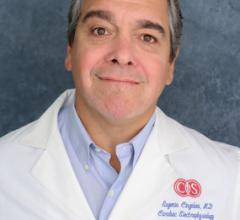
 June 19, 2024
June 19, 2024 
